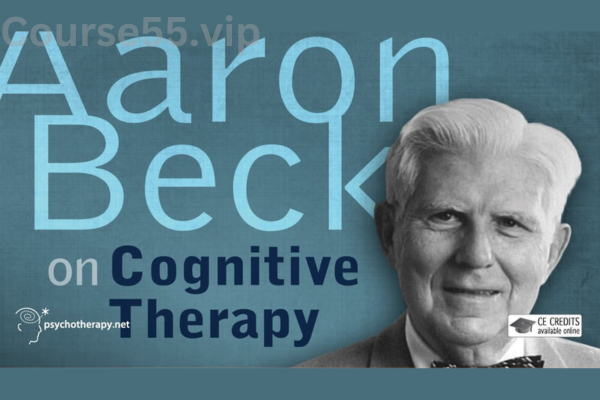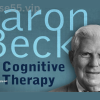Aaron Beck on Cognitive Therapy With Aaron Beck
$34.00 Original price was: $34.00.$7.70Current price is: $7.70.
Aaron Beck on Cognitive Therapy: A Comprehensive Review – Digital Download!

Aaron Beck on Cognitive Therapy With Aaron Beck
Overview

Aaron Beck’s Legacy in Cognitive Therapy: An In-Depth Analysis
Psychology has embraced many approaches over time, but few innovations have reshaped the field as profoundly as the contributions of Aaron T. Beck. Widely recognized as the pioneer of cognitive therapy (CT)—which later evolved into cognitive behavioral therapy (CBT)—Beck’s influence spans decades. During the 1960s and 1970s, he sought a more effective alternative to the psychoanalytic practices he once followed. His revolutionary ideas centered on the premise that individuals’ interpretations of experiences significantly impact their emotional well-being and behaviors. By addressing these interpretative processes, therapists can help clients recognize and change their dysfunctional thought patterns, often referred to as “automatic thoughts.” Beck’s groundbreaking studies have not only broadened our understanding of emotional functioning but have also redefined the trajectory of psychological treatment.
The Birth of Cognitive Therapy
Cognitive therapy was born as a reaction against the dominant psychoanalytic models of the mid-20th century. While psychoanalysis delved into the unconscious mind and past traumas, Beck’s approach redirected focus toward present-day thinking patterns. This transformation can be compared to shifting from a dimly lit maze to a brightly illuminated path offering clearer navigation and insight.
At the heart of Beck’s theory lies the idea that persistent negative thinking patterns, known as cognitive distortions, are major contributors to psychological struggles like depression, anxiety, and addiction. These distortions act as mental roadblocks, distorting perceptions and reinforcing emotional distress. Beck’s early clinical work revealed a crucial insight: depression often stems from these ingrained beliefs rather than merely from external hardships. This perspective marked a stark departure from the prevailing psychoanalytic views of his era.
Core Elements of Cognitive Therapy
• Therapist-Client Partnership: Beck emphasized a cooperative relationship where therapist and client work side by side to explore thinking patterns, fostering deeper therapeutic engagement.
• Detection of Automatic Thoughts: Clients are taught to notice their immediate, often negative, reactions to events. Identifying these thoughts allows individuals to better understand their emotional triggers.
• Restructuring Cognitions: Therapy focuses on challenging and altering distorted beliefs to encourage healthier, more adaptive ways of thinking and behaving.
Over decades of research, CBT has demonstrated its power in not just reshaping thought processes but in transforming emotional responses and actions, solidifying its place as a leading form of therapy.
Aaron Beck’s Enduring Research Contributions
Beck dedicated his career to thoroughly studying the effectiveness of cognitive therapy, often comparing it to other treatments like medication. Pivotal research in the late 1970s revealed that cognitive therapy could sometimes surpass antidepressants in treating depression. This critical finding positioned cognitive therapy not just as an adjunct but as a highly effective, sometimes preferable, primary treatment, especially for individuals seeking non-pharmacological interventions.
Expanding the Reach of CBT
The broad applicability of CBT further highlights its impact, as it has shown effectiveness across a wide range of mental health challenges and diverse populations. Some key areas where CBT has been instrumental include:
• Anxiety Disorders: Reframing negative thought patterns significantly reduces anxiety symptoms.
• Post-Traumatic Stress Disorder (PTSD): CBT helps individuals process traumatic memories and develop healthier coping mechanisms.
• Eating Disorders: Addressing distorted beliefs around body image and eating behaviors leads to more successful recovery outcomes.
• Psychotic Disorders: CBT provides valuable tools for symptom management and improving overall functioning in individuals experiencing psychosis.
The success of CBT across such varied conditions underlines the profound interplay between thoughts, feelings, and behaviors that Beck’s framework emphasizes.
Introducing Recovery-Oriented Cognitive Therapy
Beyond traditional CBT, Beck also developed Recovery-Oriented Cognitive Therapy (CT-R) to better address the needs of individuals facing serious mental illnesses like schizophrenia. CT-R moves beyond symptom reduction to foster empowerment, hope, and a sense of community, encouraging a holistic path to recovery.
Core Principles of Recovery-Oriented Cognitive Therapy:
• Empowerment: Encouraging clients to actively take charge of their healing journey, restoring a sense of control over their lives.
• Hope: Instilling hope serves as a vital motivational force for those facing significant mental health challenges.
• Belonging: Fostering connections through supportive relationships and community ties plays a critical role in sustaining recovery.
CT-R has significantly influenced the ongoing shift in mental health care from mere symptom control toward a broader understanding of recovery and well-being.
The Beck Institute’s Pivotal Role
In a testament to his enduring mission, Beck co-established the Beck Institute for Cognitive Behavior Therapy in 1994. This organization has been instrumental in spreading cognitive therapy practices and ensuring that CBT continues to evolve through education and research.
Major Contributions of the Beck Institute:
• Educational Programs: Offering extensive training for mental health professionals to ensure consistent and effective application of CBT principles.
• Research Advancements: Supporting ongoing research to test and refine cognitive therapy methods across diverse demographics.
• Global Initiatives: Collaborating internationally to promote CBT practices and foster a global network of evidence-based therapy.
The Beck Institute stands as a living tribute to Aaron Beck’s legacy, driving innovation and improving mental health care around the world.
Conclusion
Aaron Beck’s pioneering work in cognitive therapy has fundamentally reshaped the landscape of psychotherapy. His models and methods have established an enduring foundation for mental health treatment, backed by decades of research and clinical success. As the complexities of human cognition and emotion continue to unfold, Beck’s influence remains vital. His vision has not only transformed psychological practice but continues to inspire mental health professionals worldwide, championing the belief that by changing thought patterns, true healing and growth are achievable.
Frequently Asked Questions:
Business Model Innovation: We operate a group buying strategy, allowing participants to share costs and access popular courses at reduced prices. This model benefits individuals with limited financial resources, despite concerns from content creators about distribution methods.
Legal Considerations: The legality of our operations involves complex issues. Although we don’t have explicit permission from course creators to resell their content, there are no specific resale restrictions stated at the time of purchase. This ambiguity creates an opportunity for us to provide affordable educational resources.
Quality Control: We ensure that all course materials purchased are identical to those offered directly by the creators. However, it’s important to understand that we are not official providers. As such, our offerings do not include:
– Live coaching calls or sessions with the course author.
– Access to exclusive author-controlled groups or portals.
– Membership in private forums.
– Direct email support from the author or their team.
We aim to reduce the cost barrier in education by offering these courses independently, without the premium services available through official channels. We appreciate your understanding of our unique approach.
Be the first to review “Aaron Beck on Cognitive Therapy With Aaron Beck” Cancel reply
You must be logged in to post a review.

 Understanding the Needs of the Dying: Bringing Hope, Comfort and Love to Life's Final Chapter By David Kessler - PESI
Understanding the Needs of the Dying: Bringing Hope, Comfort and Love to Life's Final Chapter By David Kessler - PESI 














Reviews
There are no reviews yet.